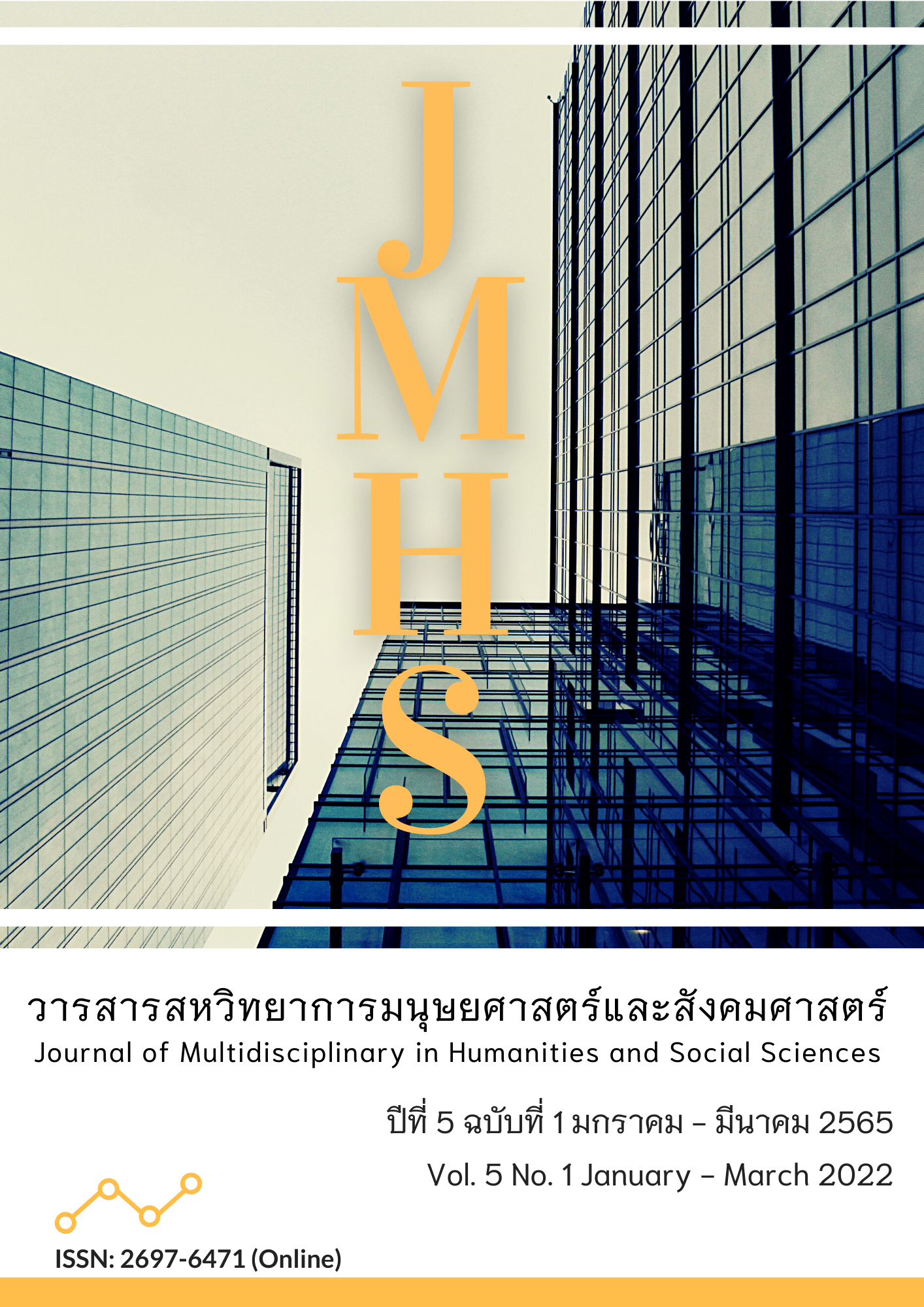Returnable Packaging Management Technology in Logistics and Supply Chain A case of Pallet Renting Business
Main Article Content
Abstract
This article aimed to design a circular material management system for logistics and supply chain processes. These key informants included an executive manager, general manager, department or operation manager, and operation staff who had worked in the logistics and pallet renting business for a total of 20 people. The research methodologies were in-depth interviews and focus groups discussion about pallet rental supply chains.
The research results showed that the pallet rental business’s management system mainly consists of 1) external pallet leasing and transfer system and 2) an internal pallet exchange management system. The pallet rental business management program could be divided into three parts: 1) Administration 2) Accounting and 3) User. The applicant consists of two parts: 1) the pallet transfer system, which is responsible for issuing the documents, withdrawing the pallet from the lessor transfer account and transferring pallets from pallet transfer partners and 2) the pallet exchange system, which is responsible for assigning right and access codes to client programs in the pallet exchange system and creating a customer database. This pallet rental program is recommended because it is installed on the Internet, which means that all users can use it anywhere, anytime. The data will be connected and updated in real time through online access. It is easy to access via smartphone, so it supports unlimited users.
Article Details

This work is licensed under a Creative Commons Attribution-NonCommercial-NoDerivatives 4.0 International License.
Views and opinions appearing in the Journal it is the responsibility of the author of the article, and does not constitute the view and responsibility of the editorial team.
References
ธงชัย พงศ์สิทธิกาญจนา และ จันทนา พงศ์สิทธิกาญจนา. (2564). ตัวแบบความสัมพันธ์เชิงสาเหตุที่ส่งผลต่อความยั่งยืนในการดำเนินงานกิจการเพื่อสังคมของวิสาหกิจชุมชนภูมิภาคตะวันตกของประเทศไทย. วารสารศิลปการจัดการ, 5(3), 780-797.
พัชรา ศรีพระบุ, บุณยวีร์ สุทธิบุตร, พัณณิตา มณฑาทอง และ วชิรา พุทธาผาย. (2563). การเพิ่มประสิทธิภาพการจัดวางพาเลทในคลังสินค้า กรณีศึกษาบริษัท โลจิสติกส์แบบครบวงจร. วารสารวิจัย มข. (ฉบับบัณฑิตศึกษา), 20(1), 175-188.
พัชราภา สิงห์ธนสาร. (2561). การปฏิบัติการภายใต้การจัดการโซ่อุปทานที่ส่งผลต่อความได้เปรียบในการแข่งขันด้านต้นทุนและความสามารถในการแข่งขันของธุรกิจส่งออกอาหารในประเทศไทย. วารสาร มจร สังคมศาสตร์ปริทรรศน์, 7(2), 152-165.
ภคพร ผงทอง. (2561). การจัดการโลจิสติกส์เพื่อสร้างความได้เปรียบทางการแข่งขันในธุรกิจพาเลทให้เช่า. วารสารมนุษยศาสตร์และสังคมศาสตร์ มหาวิทยาลัยราชพฤกษ์, 4(1), 91-100.
วรรธก หลิมสกุล และ ธัญภัส เมืองปัน. (2562). การประยุกต์ใช้บรรจุภัณฑ์หมุนเวียนในภาคอุตสาหกรรมผลิตชิ้นส่วนรถยนต์: ของบริษัทกรณีศึกษา. วารสารศิลปศาสตร์และอุตสาหกรรมบริการ, 4(2), 218-228.
สำนักงานสภาพัฒนาการเศรษฐกิจและสังคมแห่งชาติ. (2563). รายงานโลจิสติกส์ของประเทศไทย ประจำปี 2562. สืบค้นเมื่อ 24 มกราคม 2565, จาก https://www.nesdc.go.th/ewt_dl_link.php?nid=10791
Banamyong, R., & Supatn, N. (2011). Developing a Supply Chain Performance Tool for SMEs in Thailand. Supply Chain Management: An International Journal, 16(1), 20-31.
Chanklap, B. (2021). Approaches to Morning Glory Supply Chain Management of Tung Yee Peng Community, Ko Lanta District, Krabi Province. International Journal of Multidisciplinary in Management and Tourism, 5(1), 9–18.
Wattanapunkitti, P. (2021). A Causal Relationship Model of Factors Influencing the Performance of Small and Medium Enterprises in Thailand. Journal of Arts Management, 5(3), 986–1004.


